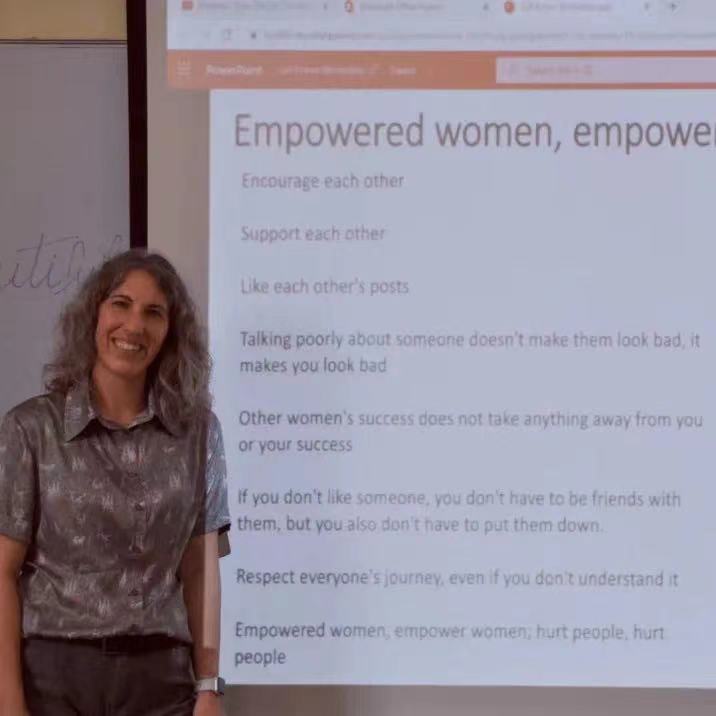Preparing to go abroad for University
GSN’s University Counselor, Ms. Diana Qiu, says that “As in life, applying to college is about getting stronger by making wise decisions. College applications require students to invest a lot of time and effort to learn about the schools and its majors. Once they have a goal, they need to keep working towards it to improve their critical thinking, problem-solving skills, leadership, teamwork skills and so on.”
Although it may seem that all is accomplished after receiving the highly anticipated acceptance letter, this process is still not over! There are a number of steps that students must take, together with their family, before boarding an airplane to study abroad.
1.After accepting the offer and paying the deposit, activate the new student account according to the school email.
2.All kinds of people who have been approved to go abroad for more than one year must go to the International Travel Health Care Center (referred to as the Health Center) under the China Inspection and Quarantine Authority to receive health checks, vaccinations, and obtain the International Travel Health Checkup Certificate (referred to as the Health Center). The "Health Certificate" must be presented to the Chinese inspection and quarantine agency before leaving the country. If the destination country does not have a fixed medical examination hospital, the Ningbo area can conduct a medical examination at the "Ningbo International Travel Health Care Center.
Address: 336 Liuting Street, Haishu District, Ningbo, Zhejiang, China
3. VISA materials: valid passport (photocopy), visa appointment form, visa payment receipt, visa photo (prepared according to the specifications of each country), admission notice, high school graduation certificate, transcript, language score (TOEFL/IELTS), proof of funds (amount of Must be higher than the tuition fee for the first year), parents' work certificate and income certificate, household registration book (and bring a copy)
4.All schools will state when international students must arrive at the school. The International Student Orientation Week includes various activities such as supplementary vaccinations, school visits, English and math proficiency tests (some will be conducted online), course selection, school opening ceremony, and bank account opening. Orientation week is mainly for students to adapt to the campus environment and life as soon as possible and make friends.
5.There are basically three types of accommodation for studying abroad: school dormitories, family accommodation, and off-campus rental housing. School dormitories can be applied online at the designated accommodation after confirming the institution to which they are going. Freshmen studying in the United States basically need to live on campus. Home accommodation has a more family atmosphere and can better understand the local life; when renting off-campus, remember to check whether the facilities are complete, and if necessary, you can discuss with the landlord. If there is any problem with the house, you must inform the landlord in time, otherwise, the deposit will be deducted when the rent is cancelled.
6.Most of the courses are selected at the school after enrollment, and the school will have corresponding instructors to know the course selection. Some schools will also conduct online course selection from June to August. Students need to pay attention to the school's mailbox and understand the course requirements and settings of their major in advance.
7.During the epidemic, air ticket sales were tight. Book tickets in advance through airlines. The peak season for studying abroad (July and August) should be about a month in advance.
8.The total annual amount of foreign exchange purchases is equivalent to USD 50,000 per person per year. If you purchase foreign exchange within the total annual amount, you can apply for it after reporting the purpose to the bank with your true identity certificate; If the purchase of foreign exchange exceeds the total annual amount, the bank can handle it after reviewing the certificate of real demand according to regulations.
9.Ways to carry tuition fees include: Cash, wire transfer, traveler's check, money order, international credit card. Students can carry a supplementary credit card for use in China.
10.Most airlines allow one carry-on bag and two pieces of checked luggage, and detailed luggage recommendations are given in a separate article.
11.Some schools will provide free or paid airport pick-up service, and students fill in and upload the form sent by the school. Students can also take a taxi directly from the airport to the school upon arrival. In addition, the school's new student WeChat group can also follow the pick-up information.





